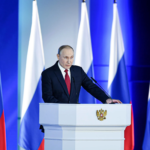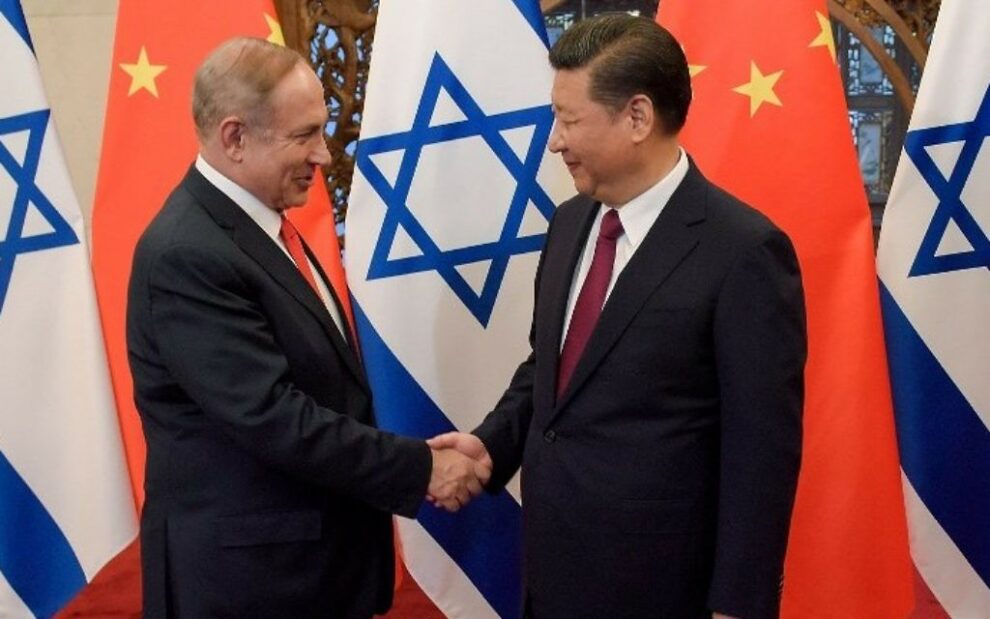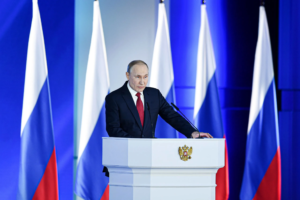Spite is a juvenile yet very powerful sentiment and motivation employed by humanoids. Recall Larry David in “Curb Your Enthusiasm,” opening a café just for spite against an obnoxious café owner who banned him, leading to “spite stores” springing up in Los Angeles.
Certainly in politics but also in diplomacy, spite is sometimes used as a blunt communications tool and a demonstration of anger or discontent. It exhibits nothing but ill-conceived and ineffective pettiness, but is nonetheless part of human weakness.
Yet when a significant diplomatic trip is announced and cannot be explained in any other way than being spiteful, it becomes recklessly dangerous. This is what is happening with Prime Minister Benjamin Netanyahu’s planned trip to China next month, which is being described as “a signal to the Biden administration,” no less. This has the potential to backfire on both U.S.-Israel relations and the domestic U.S. political arena.
A visit by the Israeli prime minister to China is unequivocally an important diplomatic event. In fact, it is one of the first countries a premier should visit. Under normal circumstances, when the Prime Minister’s Office announces such a trip, the consensus is positive. Except that these are not normal circumstances, and the visit wasn’t just divulged as part of a routine scheduling announcement.
Complementing the technical information was a defiant, sulking and profoundly reckless addition, first reported by Shalom Yerushalmi of the Zman Yisrael website: The visit, according to “a senior diplomatic source,” is meant to show U.S. President Joe Biden that Israel “has other options” – all in the context of Netanyahu conspicuously not being invited to the White House and increasingly strained relations between the United States and Israel.
Other options? What other options? Can you get more arrogantly reckless and misguided than that? Framing a trip to China as a form of venting frustrations and a protest against U.S. policy is not only inexcusably and unabashedly silly. It is also counterproductive and very likely to achieve the exact opposite.
It’s almost as if Mr. Netanyahu cracked open a Chinese fortune cookie and pulled out a narrow slip of paper that read “You have options.” That belongs in American-Chinese cuisine, not statesmanship.
China is a superpower, one of only two based on the criteria that measure and define them. China’s economy is estimated at $15 trillion, second only to the United States’ $22 trillion. In the last decade, it has begun a comprehensive process of converting its economic might to a projection of political and military power in the Pacific Basin, the South China Sea, the Korean Peninsula and vis-à-vis Taiwan. In 2013, President Xi Jinping launched the Belt and Road Initiative, designed to expand Chinese influence and gain leverage in Central Asia, the Persian Gulf, the Horn of Africa, southern Europe (via investment and acquisition of sea ports), and secure rare earth and mineral rights in western Africa.
It is in this global context that Israel rightly expanded its ties with China, occasionally against the U.S.’ better advice. So far, this is a legitimate, normal part of the multifaceted and multidimensional realm of foreign policy.
But with the evolution, or deterioration, of U.S.-China relations and mutual perceptions, this game has become risky for small countries trying to navigate a world order undergoing possibly seismic changes.
The United States views China on a dynamic spectrum stretching from the current “challenge” to “competition,” to possible “hostility” and, if that escalates, into “enmity” and potential confrontation. America has redefined and reprioritized its national security assessment, its strategic foreign policy goals, alliance formation and management, and structured an immense defense budget – $839 billion in 2022, with a similar budget for 2023 – to reflect the perception of a permanent threat from China. All top priorities and resource allocations center on the vast Indo-Pacific region, against what the U.S. believes to be an expanding, emboldened and dangerous China.
Beijing views Washington in an even more dramatic way. For the Chinese, the post-1945 world order, aka “the American Order,” is an anachronistic reflection of a post-World War II power structure that no longer exists. A hegemonic United States, controlling the structure, institutions and dynamics of the old world order, is in fact actively preventing it from manifesting its strength and power, even in the most traditional arena: its geographical spheres of influence, e.g. Korea, Taiwan, Japan, Southeast Asia. Consequently, China views its foreign policy – including economic, commercial and technological dimensions – in terms of a zero-sum game with the Americans.
That is exactly why a visit by Netanyahu will be welcomed by China – not because Xi Jinping cares about the well-being of the Zionist enterprise, worries about the prospects of a Palestinian state, is concerned with Israel’s constitutional crisis or thinks about the deployment of Huawei’s 5G network in Israel. Netanyahu will be embraced because such a visit, particularly given the remark about sending a signal to Biden, would irritate the United States and burden Biden entering an election year.
When a small country navigates between competing superpowers, that country needs to have tangible strategic assets important to both; effective levers of pressure; and not be dependent or reliant on one of those superpowers. Saudi Arabia has oil. Turkey is a member of NATO. Iran needs and wants arms and massive infrastructure investments. Israel has none of the above. Other than Chinese interests in some Israeli technology, Israel has no strategic value to China and is heavily reliant on the United States.
Since Israel’s establishment in 1948, the United States has granted Israel an aggregate total of $155 billion. Since 1973, when then-President Richard Nixon institutionalized foreign aid to Israel in the aftermath of the Yom Kippur War and against the backdrop of the Cold War, Israel has been receiving annual military aid – currently $3.8 billion a year as part of a 10-year agreement. This grants Israel unparalleled access to cutting-edge U.S. technologies, platforms and precise munitions as part of its Qualitative Military Edge arrangement, or QME.
Perhaps more important is the diplomatic umbrella the United States holds over Israel. Since the early 1970s, the Americans have cast a veto vote at the UN Security Council 53 times against anti-Israeli resolutions, even when some of them were entirely consistent with declared U.S. policy.
But surely, you are thinking to yourself, Mr. Netanyahu has no illusions that China will replace the United States. After all, regarding Iran’s nuclear program – Israel’s most important issue, according to the prime minister – China isn’t on board, deepening ties with Tehran in recent years. Surely, you are saying, Netanyahu knows all that. Well, if he does, why the irresponsible remark about a “signal” to Biden and Israel’s “options”?
And if he does know all that, he also knows that the one issue Democrats and Republicans agree on is their hostility to China, vying with each other over who will be more militant. How will his friends, such as GOP Sen. Lindsey Graham, respond to an effusive overture to China? Sure, they’ll blame Biden, but Netanyahu will not emerge unscathed.
The U.S.-Israel alliance is based on the concept of “shared values.” Netanyahu needs to look at his own policies to understand why Washington is questioning his commitment to that concept. Unless, of course, he now believes the Israel he is envisioning through his proposed constitutional coup has more in common with China than the United States. In that case, his visit will definitely be a signal to Biden.
Source : hareetz
















